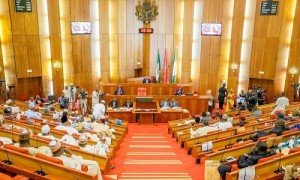
As a result of the current recession hitting the country, the Nigerian government has sought to diversify its revenue sources.
In a bid to do this, the government appears to have found its communications industry as a cash cow to be milked.
It has been reported that lawmakers are discussing a bill to tax communications services, including phone calls, texts, internet data and cable television.
Nigeria’s telecoms sector alone is said to be responsible for about 8% of the GDP.
If the bill is eventually passed, it will impose a communications service tax (CST) of 9% on those services, Quarts Africa reports.
To enforce the tax, the bill proposes that telecoms regulators and the federal tax agency be provided with access to network and billing records of service providers in the communications industry. Non-compliant service providers will face fines and a possible revocation of their licenses.
This will in no doubt affect the end users of the service. Making phone calls, surfing the web and watching TV in would definitely be more expensive.
The taxes charged on the service providers would also cost consumers in their service fees and this could be damaging to the country’s growing level of internet usage.
Experts have suggested that the country should instead do the reverse. World Bank estimates that a “10 percentage point increase in fixed broadband penetration” can result in a 1.38% growth in GDP.





service provider that defaults will face fine and penalty:just like the one MTN faced and had a three hundred percent reduction and paid just less than 25% of the cost not before and after bribing the CHIEF OF STAFF with N500M which your president is aware.PLEASE GUYS LETS MOVE TO THE NEXT BILL…